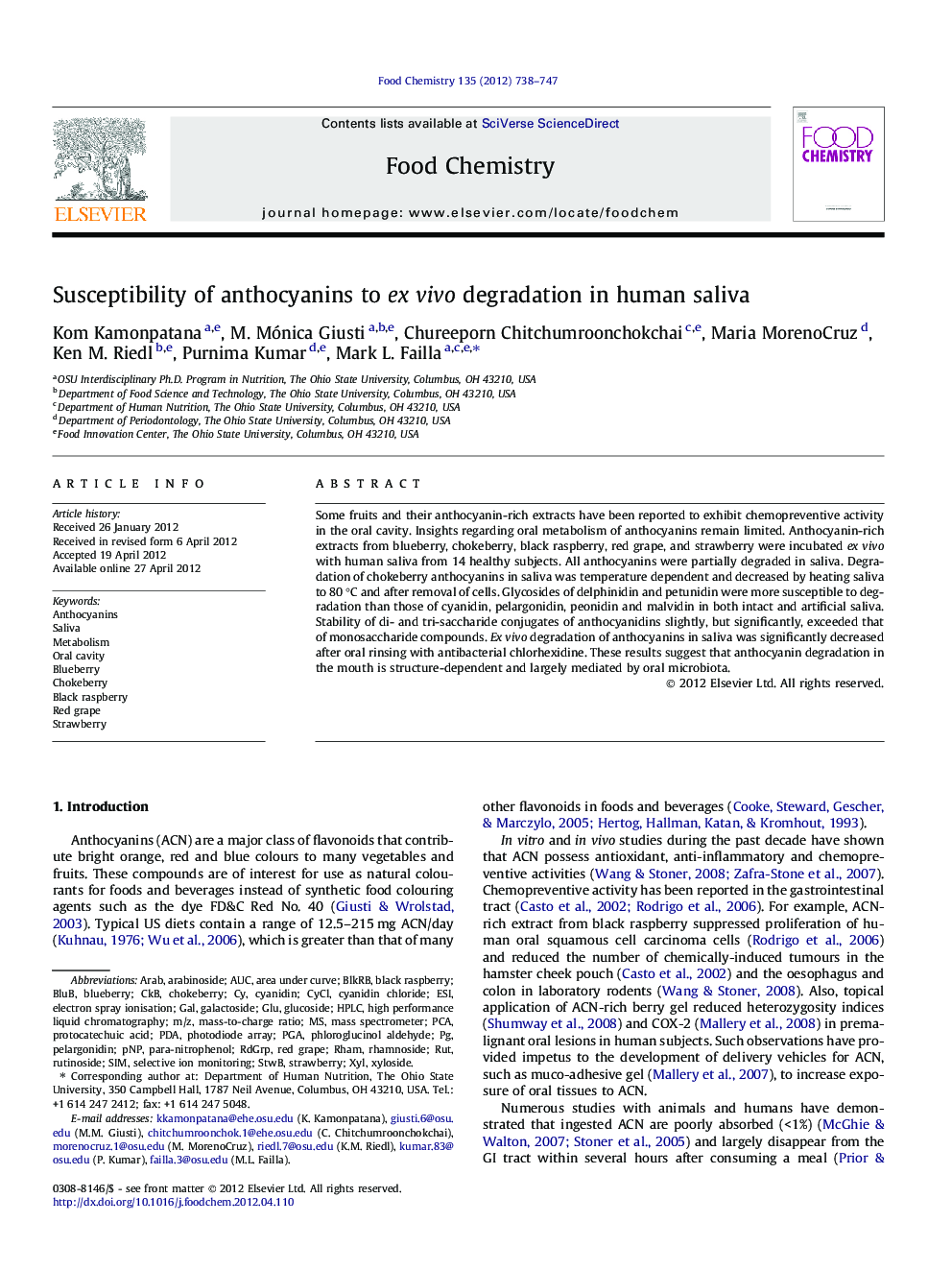| Article ID | Journal | Published Year | Pages | File Type |
|---|---|---|---|---|
| 1185784 | Food Chemistry | 2012 | 10 Pages |
Some fruits and their anthocyanin-rich extracts have been reported to exhibit chemopreventive activity in the oral cavity. Insights regarding oral metabolism of anthocyanins remain limited. Anthocyanin-rich extracts from blueberry, chokeberry, black raspberry, red grape, and strawberry were incubated ex vivo with human saliva from 14 healthy subjects. All anthocyanins were partially degraded in saliva. Degradation of chokeberry anthocyanins in saliva was temperature dependent and decreased by heating saliva to 80 °C and after removal of cells. Glycosides of delphinidin and petunidin were more susceptible to degradation than those of cyanidin, pelargonidin, peonidin and malvidin in both intact and artificial saliva. Stability of di- and tri-saccharide conjugates of anthocyanidins slightly, but significantly, exceeded that of monosaccharide compounds. Ex vivo degradation of anthocyanins in saliva was significantly decreased after oral rinsing with antibacterial chlorhexidine. These results suggest that anthocyanin degradation in the mouth is structure-dependent and largely mediated by oral microbiota.
► All anthocyanins from selected five fruits were partially degraded in human saliva. ► Degradation of glycosides of delphinidin and petunidin exceeded that of other anthocyanidins. ► There was minimal effect from type and number of saccharides on susceptibility to degradation. ► Extent and pattern of salivary degradation of anthocyanins varied across subjects. ► Oral microflora contributed to the degradation of all anthocyanins.
